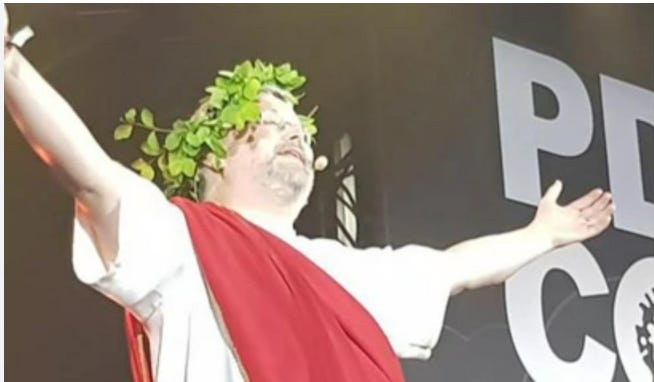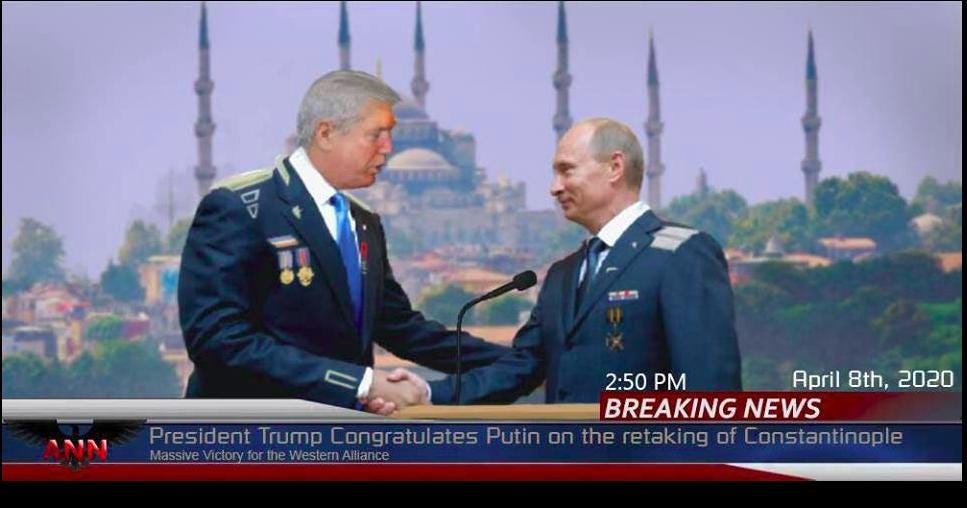The Paradoxification of the Centre
Social History
The Stockholm suburbs in the early 2010s were the site of two great fingers stuck up, in Churchillian defiance, against Woke. Firstly, a group of Swedish teenagers and one token Thai invented scenecore music, thereby, overnight, ensuring that fifteen years later not a single rap artist would be in the top 30 and destroying the myth of ‘American cultural victory’ forever. Secondly, Paradox Interactive, a pokey little studio known for slightly eccentric grand strategy games, came out with Crusader Kings II.
When a host of NGO employees and state agents began writing ‘de-radicalisation’ literature, aimed at studying and ultimately neutering the alt-right, in the aftermath of Trump’s first (of three) election victories in 2016, I was eager to see how they’d treat Paradox Interactive. The fact that none of them ultimately did, and we still lack John Merrick’s takedown of Johan, is proof to me there was nothing to fear in the project. Paradox is probably the single media franchise which most influences the ‘chud’ worldview. It is something which saturates the life of embryonic chuds from their pre-teens. It is to bonafide, pre 2020, chuds what Football is to Football fans or rap music to balding 40 year olds living in Dalston, or Gogglebox to Reform voters. When I was in school, apathetic gamer kids who had no interest in History or politics knew what ‘the Holy Roman Empire’ was due to Paradox, this meant that when they saw memes, in 2016, about ‘the Holy Roman Empire’ they could immediately ‘take part in that conversation.’ I believe that ‘nationalism’ in several Eastern European countries only exists due to Paradox Interactive.
— Lobe.
I must stress, the worldview of Paradox is not in any sense far-right or even ‘nationalist.’ What is unique about it is that it is a world in which ‘nationalism’ is taken for granted. The worldview of the Paradox development team, and the majority of Paradox fans, is that of an eyebrow permanently cocked at the days news, best associated with the concept of a “Return of History” as an end in itself, rather than any actual political programme. The scene around Paradox is one in which knowledge of History, of Winged Hussars, of Tuvans and Ruthenians, is seen as something one Ought to know about to take part in discussions. It is not that Paradox fans are inherently racist, it is simply that the nature of games in which colonisation, war and religious violence are inherently ‘part and parcel’ means it’d be absurd for racial humour to be frowned upon.
But this is less significant than the way in which the mechanics of Paradox Games inherently challenged the materialist view of History. When you play as, instead of a character, a country, an inherently ahistorical division is created: you are not the country’s “government” itself, you are the player and can change that government like any other part of your nation. The player, in good Paradox games, exists entirely divorced from the “social forces” which the ideology of Democracy say govern History. Economic, military and political factors are all equally manipulable. Even if Paradox Games had been Woke, they would still create a worldview in their players of cavalier disregard for human life and an appreciation for the role agency may play in global affairs. Why, after all, shouldn’t we invade South Africa?




